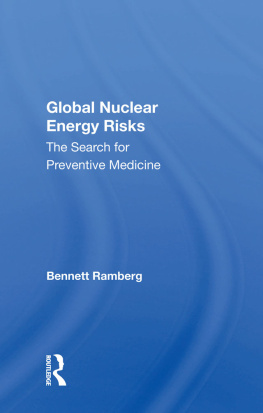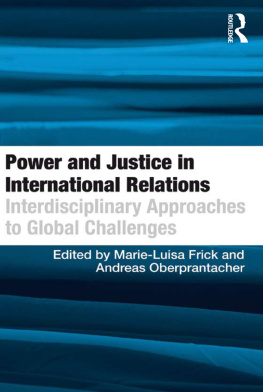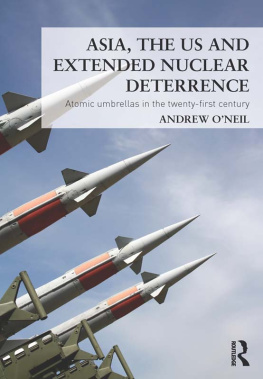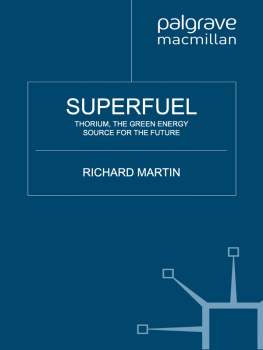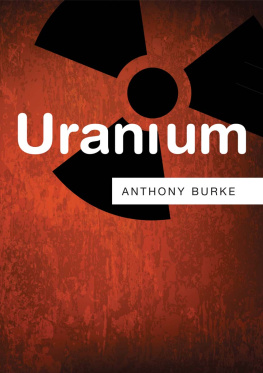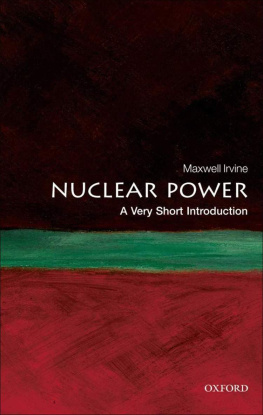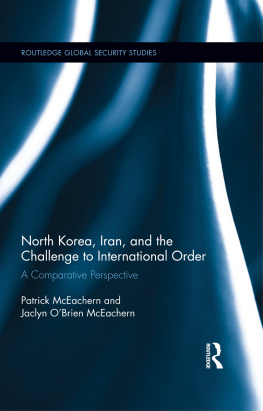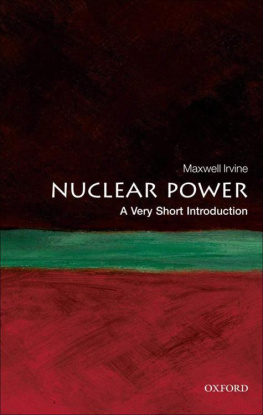Global Nuclear Energy Risks
About the Book and Author
Global Nuclear Energy Risks: The Search for Preventive Medicine
Bennett Ramberg
Almost two dozen nations currently generate nuclear energy, and eighteen more are planning to construct reactors in the near future. This expansion increases the need for the international community to find ways to meet five basic security challenges: national and subnational diversion of nuclear materials for weapons, subnational sabotage of nuclear facilities, wartime destruction, and major accidents. To date, international efforts to address these problems have included the Non-Proliferation Treaty, the Latin American nuclear-free zone, the International Atomic Energy Agency, and the nuclear suppliers conference. Despite these laudable achievements, uneven approaches to obligations and inherent problems in the international agreements may weaken their effectiveness. New approaches must be sought in order to ensure safe, peaceful development of nuclear energy.
Dr. Ramberg explores various methods of enhancing existing practices through the use of "preventive medicine." After outlining the current nuclear regime and examining its weaknesses, he evaluates the desirability and practicality of seven "international nuclear review" options focused on preventing a global nuclear disaster.
Bennett Ramberg is a research associate at the Center for International and Strategic Affairs, University of California, Los Angeles, and co-editor of Globalism vs. Realism: International Relations' Third Debate (Westview 1982) and Nuclear Power Plants as Weapons for the Enemy: An Unrecognized Military Peril (1984).
To the memories of my dearest friends
my dad, Isaac Romberg, and
my uncle, David Lipsky
Written under the auspices of the Center for International and Strategic Affairs, University of California, Los Angeles. A list of other Center publications appears at the end of this book.
Global Nuclear Energy Risks
The Search for Preventive Medicine
Bennett Ramberg
First published 1986 by Westview Press, Inc.
Published 2018 by Routledge
52 Vanderbilt Avenue, New York, NY 10017
2 Park Square, Milton Park, Abingdon, Oxon OX14 4RN
Routledge is an imprint of the Taylor & Francis Group, an informa business
Copyright 1986 Taylor & Francis
All rights reserved. No part of this book may be reprinted or reproduced or utilised in any form or by any electronic, mechanical, or other means, now known or hereafter invented, including photocopying and recording, or in any information storage or retrieval system, without permission in writing from the publishers.
Notice:
Product or corporate names may be trademarks or registered trademarks, and are used only for identification and explanation without intent to infringe.
Library of Congress Cataloging in Publication Data
Ramberg, Bennett.
Global nuclear energy risks.
Bibliography: p.
Includes index.
1. Nuclear nonproliferation. 2. Nuclear energy International cooperation. 3. Nuclear power plants Security measures. I. Title.
JX1974.73.R34 1985 327.1'74 84-22909
ISBN 13: 978-0-367-01230-4 (hbk)
The nuclear industry today is in serious recession. In the United States a recent government report found that "no nuclear plant now operating or still under active construction has been ordered since 1974, and every year since has seen a decrease in total utility commitment to nuclear power." Abroad, with few exceptions, the nuclear energy industry is sputtering. Whether or not the industry worldwide can revive is a matter of conjecture. Industry and government officials in the United States and elsewhere argue that the inevitable increase of electrical consumption in the years ahead coupled with the retirement of older oil- and coal-fired plants makes a renaissance of nuclear power inevitable. Critics counter that challenges confronting the industry are insuperable. Beyond cost, safety, and an absence of public confidence, they point to strategic problems, namely, the potential link of the nuclear industry to weapons proliferation, terrorism, and radioactive contamination that could result from military destruction of nuclear plants and from major accidents.
If the industry is to prosper in the coming years, it must meet each of these challenges. As two prominent students of the industry, William Walker and Mans Lnnroth, note, "If demand does return, however modestly, reliance on 'muddling through' may place too much faith in the wisdom of peoples and governments." This book addresses the strategic challenges and proposes alternative international remedies set in historical and regulatory contexts that suggest that nations should increase international scrutiny of atomic power in order to minimize risks.
There are five major security risks attached to worldwide growth of nuclear energy: national diversion of nuclear materials for weapons, subnational diversion for weapons, subnational sabotage of nuclear facilities, wartime destruction, and major accidents. Thus far, these risks have been minimized by the Non-Proliferation Treaty (NPT), the international Atomic Energy Agency (IAEA), the European Atomic Energy Community (EURATOM), the Agency for the Prohibition of Nuclear Weapons in Latin America, and by nuclear suppliers' safeguards and guidelines. However, uneven application of obligations and inherent deficiencies in these control measures may decrease their effectiveness in the future, so novel remedies must be sought and applied.
More authoritative nuclear energy control measures offer the kind of preventive medicine that can limit strategic nuclear energy risks. The earlier and the more extensively these measures are applied, the greater will be their effectiveness. The measures fall into two basic categories: primary and secondary prevention. Primary prevention involves averting subnational diversion, sabotage, wartime destruction, and major accidents; secondary prevention entails halting the international proliferation of nuclear weapons.
Proposed here are seven International Nuclear Reviews (INRs), distinguished by their degree of utility in anticipating nuclear problems. The INRs build upon a historical record suggesting that nations are increasingly sensitive to the dangers posed by nuclear energy and are willing to take measures to minimize them. The INRs have grown out of the experience of the Nuclear Regulatory Commission, the Energy Research and Development Administration (ERDA), the Nuclear Non-Proliferation Act of 1978, the U.S. Arms Control and Disarmament Agency (ACDA), EURATOM, the Consultative Committee (Cocom), and the International Bank for Reconstruction and Development (the World Bank), plus the IAEA's physical security guidelines, which attempt to anticipate technological risks, including, in most cases, those derived from atomic power. Proposals of scholars and officials in the industry have also been considered in the development of these INRs.
anticipates questions about their viability.
Both opponents and proponents of nuclear energy may feel uncomfortable with the options I offer. Opponents may see them as an effort to sustain a dying industry. If indeed the industry is dying, it is unlikely that my suggestions will revive it. If it is not dying, adoption of my suggestions (or facsimiles thereof) can make nuclear power safer. I advocate greater international regulation in an industry that many feel is overregulated, but the atomic energy industry cannot withstand many more accidents like that at Three Mile Island, more military bombardment of reactors like the 1981 Israeli attack, or the realization of other strategic threats. Although this study may not satisfy everyone, I hope at the very least that it stimulates new thought on the issues involved.


